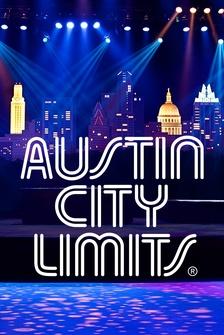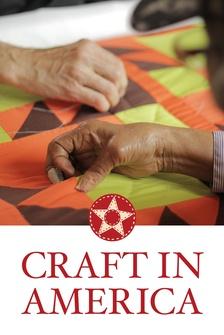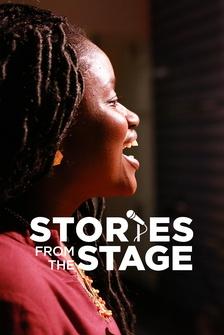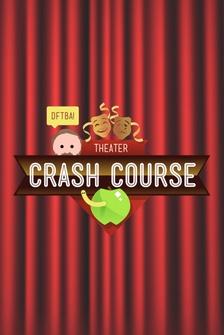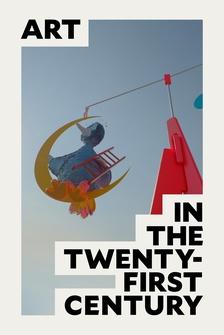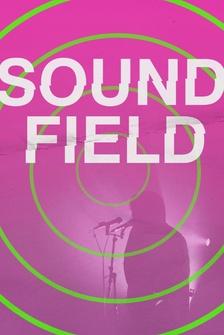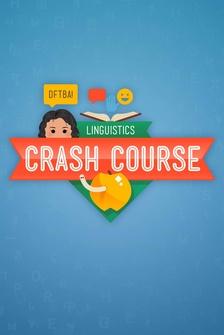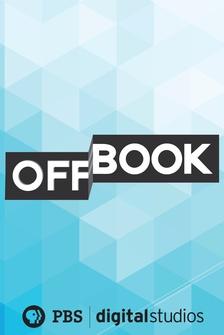♪ Streets of Philadelphia ♪ JOSHUA: For me music has always been about the emotional connection, and maybe even more so about emotional release.
It was very important for me to select songs about American places that showed different aspects of the American experience, and different aspects of the human experience.
I wanted to make sure that there was darkness to balance the light.
(theme music plays) (siren) (inaudible audience chatter) (applause) (saxophone playing) ♪ ♪ JOSHUA: It was very important for me to select songs about American places that, that, that showed different aspects of the American experience and different aspects, perhaps more importantly, of the human experience.
♪ ♪ One of the concepts that I kind of played with in planning the album was not just selecting songs that referred to places in the United States, but also in many cases combining elements of different songs about that same place.
We kind of call them mashups for lack of a better word.
I think I realized early on that it was going to be a, a project attended more towards the more lyrical, melodic, softer, more sensual, more ballad like moods and modes of, of musical expression.
And so, you know, it was important for me to find musicians that were great lyricists but who could fuse that with a very, very deep and almost visceral sense of groove.
There's this point at which the groove is gonna start, and like, when is Joe gonna come in, and what is he gonna play?
You never know, but it's always perfect.
Brian Blade is probably my oldest and deepest musical connection and collaborator.
I can't even imagine what, what playing music would be without having played it with, with Brian.
Aaron's the poet.
There's just a flow, there's a flow that he taps into.
He's always had that.
Gabrielle, there's just something in her voice, in the spirit of her music, the texture of her voice.
An emotional depth that really... it really draws you in.
I wanted it to groove and also sway and be lush.
So, uh, yeah I mean I, I have to say, I put together the dream band for that.
♪ ♪ ♪ Going to Chicago ♪ ♪ Sorry ♪ ♪ I can't take you ♪ ♪ I'm going to Chicago ♪ ♪ Sorry ♪ ♪ I can't take you ♪ ♪ There's nothing in Chicago ♪ ♪ For a boy like you to do ♪ ♪ You know I love you ♪ ♪ But I fear love won't keep me ♪ ♪ You know I love you ♪ ♪ I fear love won't keep me ♪ ♪ I know someday someway something ♪ ♪ Has to reach me ♪ (saxophone solo) ♪ ♪ ♪ ♪ ♪ ♪ ♪ ♪ ♪ ♪ ♪ ♪ ♪ ♪ ♪ ♪ ♪ ♪ ♪ ♪ ♪ ♪ ♪ ♪ ♪ ♪ (applause).
♪ In the dead of night ♪ ♪ I can hear you breathing ♪ ♪ In the dead of night ♪ ♪ I can't sleep ♪ ♪ But I can hear you breathing ♪ ♪ I close my eyes ♪ ♪ I can't imagine ♪ ♪ I can't imagine leaving ♪ ♪ You're so sweet, so gentle ♪ ♪ Do things I'd never do ♪ ♪ You're so sweet, so gentle, ♪ ♪ You do things I would never think to do ♪ ♪ But baby ♪ ♪ You've got my brand of honey ♪ ♪ So I guess I'll put up with you ♪ (harmonizing with melody) (harmonizing with melody) ♪ ♪ (harmonizing with melody) (harmonizing with melody) (applause).
JOSHUA: I feel like, much if not all of my favorite music is willing to, and readily engages with, with melancholy.
With a sense of sadness, and hurt, and hardship.
But through that engagement, there is an affirmation, an affirmation of adversity and a form of transcendence, hopefully, and catharsis.
George Floyd was murdered on the 25th of May, which also happens to be my daughter's birthday.
And then I wrote the song "After Minneapolis" on May 31st, which was 5 days later, which was my mother's birthday.
It's probably the only song that I've ever written that was consciously about something, and the murder of George Floyd was a seismic event in the life of our nation, and in the life of the world.
I can't think of another song that I've written that was a direct response to an event.
Writing that song and it started just as, when I first wrote it, it was just an instrumental, there were no lyrics, was my way of kind of trying to process, you know, how I felt about what had happened.
(saxophone solo) (saxophone solo) ♪ ♪ ♪ Knee on neck, near naked night ♪ ♪ Colors cleave ♪ ♪ Fear forms hate in faithless fight ♪ ♪ Love that leaves ♪ ♪ Racing fast, resigned to ruin ♪ ♪ Are we really blind to the moon ♪ ♪ And deaf to the tune?
♪ ♪ Tasteless tears, amoral might ♪ ♪ Souls set out to sea ♪ ♪ Can we feel the distant light?
♪ ♪ Does it breathe?
♪ ♪ Broken mirrors subtract our sight ♪ ♪ Shadows seethe ♪ ♪ Arc that bends forever long ♪ ♪ Will it even stretch past this song?
♪ ♪ Turn right from a wrong?
♪ ♪ Rise up, face toward morning bright ♪ ♪ Bravely make our peace ♪ (saxophone solo).
♪ ♪ ♪ ♪ ♪ ♪ ♪ ♪ ♪ ♪ ♪ ♪ ♪ ♪ (drum solo) ♪ In this land of debts denied ♪ ♪ Dare we dream?
♪ ♪ Draw our breath, lay arms aside ♪ ♪ Mend the seam ♪ ♪ Sense the home deep in our hearts ♪ ♪ Hands held we make sum of our part ♪ ♪ To end with a start ♪ ♪ Stirring pride, let hope abide ♪ ♪ So shall we be free ♪ (saxophone solo) (vocalizing) (vocalizing) ♪ Be free ♪ (saxophone solo) (vocalizing) ♪ ♪ (applause).
JOSHUA: I was born and raised in Berkeley, California.
I was raised by my mother Renee Shedroff.
I'm the son of Dewey Redman, a great jazz saxophonist, but I did not grow up with him.
I saw him maybe a handful of times in my 18 years living in Berkeley, California.
I like to say that I grew up materially poor but culturally and emotionally rich.
My mom took me to musical performances, and dance performances and art shows, and poetry readings, and just was a, you know, magical, mysterious world of, of expression and joy and emotion.
I can't remember much, I think I've, I think I've repressed a lot of my childhood, I don't know why.
It was a good childhood, I guess, but I'm not sure I was the happiest child.
Yeah, um, I was just this, you know, super shy, nerdy kid.
And like school was kind of where all of that kind of focus and rigor and discipline went.
For me, music was a release, music was play.
In the fifth grade I started on saxophone, and I went straight to tenor saxophone, I didn't want to play alto, I don't know why.
Maybe I do.
I think a psychoanalyst would know why.
For me, music has always been about the emotional connection, and maybe even more so about emotional release.
Because I, as a child, and probably as an adult, I lived and lived so much of my life kind of in my head.
Um, and it's not always the most comfortable and happy place to be, you know.
I mean, I was definitely an extremely shy and introverted kid.
And I never felt like I was really good at anything, except identifying the things that I wasn't good at.
Music was where I was able to kind of... be my fullest, most natural, most extroverted uh, most comfortable self.
You know, we, we tell these stories about ourselves like, that, as if our lives unfold um, in some sort of... logical, linear, traceable way.
But part of me feels like, even though, even though we need it, it's an illusion, it's a necessary illusion, but I don't know that that continuity actually exists.
♪ I was bruised and battered ♪ ♪ Didn't know what I felt ♪ ♪ Unrecognizable to myself ♪ ♪ Saw my reflection in a window ♪ ♪ and I didn't know my own face ♪ ♪ Oh, don't leave me wastin' away ♪ ♪ On the streets of Philadelphia ♪ (vocalizing) ♪ I walked the avenue ♪ ♪ 'til my legs felt like stone ♪ ♪ I heard the voices of friends vanished and gone ♪ ♪ At night I could hear the blood in my veins ♪ ♪ Just as black and whispering as the rain ♪ ♪ On the streets of Philadelphia ♪ ♪ Ahh ♪ (saxophone solo).
(vocalizing) ♪ The night has fallen and I'm lyin' up awake ♪ ♪ I can feel myself fading away ♪ ♪ So receive me, brother, with your faithless kiss ♪ ♪ Or will we leave each other alone like this ♪ ♪ On the streets of Philadelphia?
♪ ♪ Ahh, ahh ♪ ♪ ahh ♪ (saxophone solo).
♪ Ahh, ahh ♪ ♪ Ain't no angel gonna greet me ♪ ♪ It's just you and I, my friend ♪ ♪ And my clothes don't fit me no more ♪ ♪ I've walked a thousand miles just to slip this skin ♪ (saxophone solo).
♪ ♪ ♪ ♪ ♪ ♪ ♪ ♪ ♪ ♪ ♪ ♪ ♪ ♪ ♪ ♪ ♪ ♪ (applause).
JOSHUA: I certainly never predicted a life and a career as a musician.
I knew of my father's struggles, you know, because he's one of the great tenor saxophonists, is one of the most respected saxophonists of his time and his generation, but you know he struggled.
I mean, I would, I remember when I first went to visit him in New York.
This was when I was in college, towards the end of college.
Um, and we got to his place and he was like, "hold on I got to go down the street", and I stayed in his apartment, he went down the street to get his saxophone out of the pawn shop.
Because he would put his saxophone in the pawn shop to get money, you know, make, make ends meet.
And then when he was about to go back out on the road, he'd get it out.
I knew all of this on some level growing up, and uh, you know, I think because I grew up without any material luxury, there was a part of me that wanted to just feel like I had... yeah that, that, that had some financial and material stability in my life.
And I saw school as the way to gain that.
You know, I had an intense undergraduate experience, and I needed a break, yeah?
So I, I applied for a deferment from Yale law school and they granted it.
But I moved to New York, um, and I thought I would be there for a year.
I moved in June and you know by September I mean, not only was like I just fully immersed in the music scene there, and the jazz scene there, and like going out every night, and hearing, you know, my idols perform, and playing jam sessions all the time with my peers, starting to work with my dad.
I was getting to play the greatest music with the greatest musicians, and I was able to pay my rent, you know.
And buy an extra slice of pizza, or two!
♪ ♪ I was starting to get calls to go on the road, to tour.
Um, both with my peers and also elder musicians whom I had grown up listening to and idolizing.
I had won a competition, the Thelonious Monk competition, which was for saxophone that year.
You want to know the real reason I entered the Thelonious Monk competition?
There was a woman that I was really interested in, and she lived in D.C.
So I gotta find an excuse to get down to D.C. And so I called up the Thelonious Monk folks, and I was like "is it too late to submit the, the tape?"
And they're like, well, you probably, yeah you can't send it in by mail, but you, if you could get it to us here, you know, hand deliver it or whatever.
I was like yes, I'm there!
I realize how ridiculously, absurdly fortunate I was.
Just to be in the right place at the right time.
I mean it's just dumb luck.
What I had was an ability to be able to find myself in musical situations where I was in way over my head, and yet find a way to, to stay afloat and actually be part of the musical conversation, and contribute to it uh, in a meaningful way.
I've always considered myself a listener first, and a player second.
Probably still.
♪ ♪ (saxophone solo).
♪ ♪ ♪ On a dark desert highway ♪ ♪ Cool wind in my hair ♪ ♪ Warm smell of colitis ♪ ♪ Rising up through the air ♪ ♪ Up ahead in the distance ♪ ♪ I saw a shimmering light ♪ ♪ My head grew heavy and my sight grew dim ♪ ♪ I had to stop for the night ♪ ♪ There she stood in the doorway ♪ ♪ I heard the mission bell ♪ ♪ I was thinking to myself ♪ ♪ "This could be Heaven or this could be Hell" ♪ ♪ Then she lit up a candle ♪ ♪ And she showed me the way ♪ ♪ There were voices down the corridor ♪ ♪ I thought I heard them say ♪ ♪ "Welcome to the Hotel California ♪ ♪ What a lovely place ♪ ♪ Such a lovely face ♪ ♪ Plenty of room at the Hotel California ♪ ♪ Any time of year ♪ ♪ You can find it here" ♪ (saxophone solo) ♪ ♪ (applause) (piano solo) ♪ ♪ ♪ ♪ ♪ ♪ ♪ ♪ ♪ ♪ ♪ ♪ (saxophone solo) ♪ ♪ ♪ ♪ ♪ ♪ ♪ ♪ ♪ Mirrors on the ceiling ♪ ♪ Pink champagne on ice ♪ ♪ She said, "We're all just prisoners here ♪ ♪ of our own device" ♪ ♪ In the master's chambers ♪ ♪ They gathered for the feast ♪ ♪ They stab it with their steely knives ♪ ♪ But they just can't kill the beast ♪ ♪ Last thing I remember ♪ ♪ I was running for the door ♪ ♪ I had to find the passage back ♪ ♪ To the place I was before ♪ ♪ "Relax, " said the night man ♪ ♪ "We are programmed to receive ♪ ♪ You can check-out any time you'd like ♪ ♪ But you can never leave!"
♪ ♪ "Welcome to the Hotel California ♪ ♪ Such a lovely place ♪ ♪ Such a lovely face ♪ ♪ Plenty of room at the Hotel California ♪ ♪ Any time of year ♪ ♪ You can find it here" ♪ (saxophone solo).
♪ ♪ ♪ ♪ ♪ ♪ ♪ ♪ (scatting) (scatting) (scatting) (scatting) (saxophone).
♪ ♪ (applause).
JOSHUA: You know a lot of the classic American Songbook tunes, these great standards that jazz musicians have always been playing, and will probably always continue to play, a lot of those tap in to a very romantic, positive, optimistic aspect of the American experience.
So, early on I was like, we're going to do "Stars Fell on Alabama" and we're going to put that next to John Coltrane's "Alabama".
John Coltrane's "Alabama" is one of the greatest, um, for lack of a better word uh, social justice songs in in the Jazz Pantheon.
I mean I put it up there with Billy Holiday's "Strange Fruit".
For me, "Alabama" is probably the greatest instrumental song because it's a direct response to racial violence, racial terrorism, of the 1963 bombing of the 16th Street Baptist Church in Alabama, which was a horrific act, but also a watershed moment in the Civil Rights movement.
And the story goes that Coltrane modeled the melody of "Alabama" off of Dr King's eulogy, I think the eulogy for three of the four Black girls who were killed in the in the bombing.
So I'd been listening to that song a lot, and had played it a few times, mostly solo, but I hadn't played it really with a group before.
You know, there are lived American realities, and ways in which the, these realities are incongruous with or, or have diverged from the idealism of the American project and the American dream.
These are things that I, that I felt needed to be tapped into as well.
I mean to be, to be very blunt about it, I wanted to make sure that there was darkness to balance the light.
♪ ♪ ♪ We lived our little drama ♪ ♪ We kissed in a field of white ♪ ♪ And stars fell on Alabama ♪ ♪ last night ♪ ♪ I can't forget the glamour ♪ ♪ Oh, your eyes held a tender light ♪ ♪ And stars fell on Alabama ♪ ♪ last night ♪ ♪ I never planned it in my imagination ♪ ♪ A situation so heavenly ♪ ♪ A fairy land where no one else could enter ♪ ♪ And in the center, just you, just me, dear ♪ ♪ My heart beat like a hammer ♪ ♪ Oh your arms wrapped around me tight ♪ ♪ And stars fell on Alabama ♪ ♪ last ♪ (holding note) ♪ night ♪ (saxophone solo).
♪ ♪ ♪ ♪ ♪ ♪ ♪ ♪ ♪ ♪ ♪ ♪ ♪ ♪ ♪ ♪ ♪ ♪ ♪ ♪ ♪ ♪ ♪ ♪ ♪ ♪ ♪ ♪ ♪ ♪ ♪ ♪ (applause) ♪ ♪ ♪ ♪ ♪ ♪ ♪ ♪ ♪ ♪ ♪ ♪ ♪ ♪ ♪ ♪ ♪ ♪ ♪ ♪ ♪ ♪ ♪ ♪ ♪ ♪ ♪ ♪ ♪ ♪ ♪ ♪ ♪ ♪ ♪ ♪ ♪ ♪ ♪ ♪ ♪ ♪ ♪ ♪ ♪ ♪ ♪ ♪ (quiet fade).
(applause).
JOSHUA: Everything you do in your life finds its way into your music.
But for me, it's almost never any sort of direct, traceable thing.
When I play music I'm entering into some sacred, completely verified, unique world.
If I try to make a translation between that world and the other worlds of my life experience, I lose whatever magic I possess in, in that world, the musical world.

